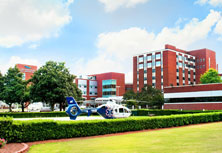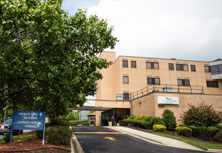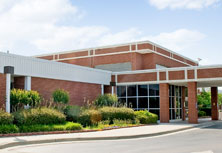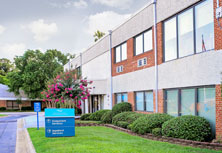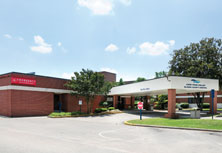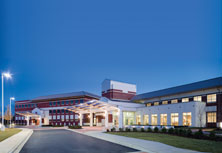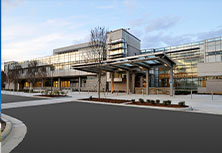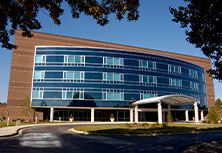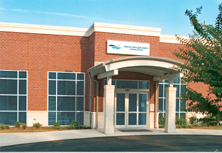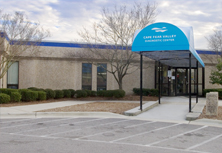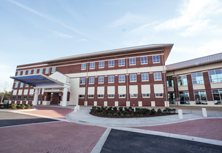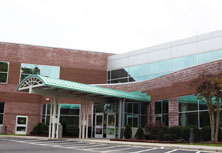Pulmonary Residency Program
Education Components
The Core Curriculum Conference Series will include a mix of instructional modalities including didactic lectures, case presentations, medical simulation. Lecturers will include speakers with diverse critical care related backgrounds. Attendance by fellows and faculty will be tracked to ensure robust participation. Conferences will be held daily and will include:
Core Pulmonary Content: These lectures will be faculty-led one-hour discussions that reinforce the medical knowledge that is essential to successful board exam performance and routine pulmonary medicine. These presentations will include relevant core basic science topics such as genetics and developmental biology of pulmonary diseases, pulmonary physiology, biochemistry and pathophysiology.
Grand Rounds:These sessions will be one-hour sessions that allow the group to invite local, regional and national experts in pulmonary medicine to present to the group on current topics relevant to pulmonary physicians. Fellows will also be asked to present at designated Grand Round conferences. The fellow should select a relevant pulmonary disease topic that coincides with the Grand Rounds activity and has a body of literature to review. The most important point will to be to make the talk practical and interesting. Talks based on unique experiences may also be appropriate. Faculty and colleagues should be able to obtain new insight from the topic. Fellows should utilize recognized experts and complete an exhaustive iterature search. The topic choice must be reviewed with a faculty member.
Journal Club: All fellows are required to present at Journal Club quarterly. Article selection will be done by the fellows in collaboration with their faculty mentor. Journal Club is intended to review landmark studies in the recent pulmonary literature and develop evidence-based medicine analytic skills. A significant amount of time should be spent analyzing the articles and conclusions should be discussed with the faculty present. Fellows will be encouraged to begin thinking about their topic and discussing potential articles 1-2 months in advance.
M&M Conference: Morbidity and mortality conferences will provide a forum to discuss patient safety and practice improvement.
Board Review: Fellows will attend weekly board review sessions that utilize questions from a designated board prep question bank, such as ACCP to prepare fellows for their board exam in a format that addresses test taking skills and pulmonary knowledge.
Fellows' Case Conference: These sessions will be fellow-led, one-hour discussions based on cases that demonstrate key teaching points. The fellows will be expected to review the primary literature to support the most salient educational aspects of each case. Fellows will be paired with a faculty member for the presentation. The fellow should contact the paired faculty member at least two weeks prior to the presentation to review the case and the teaching points. Fellows will be encouraged to select any interesting case, but it should be applicable to pulmonary disease. The case should be presented as an unknown and the audience should attempt to derive the diagnosis. This presentation should be highly interactive with the audience.
Quality and Patient Safety ConferenceThese will be presentations by the fellows and faculty that serve as the outlet to share the results of one quality improvement project intended to enhance care delivery within the hospital and/or two patient safety projects intended to address shortcomings across the system that put patients at risk.
Motor Skills: In the first year of fellowship, all fellows will have a pulmonary boot camp where they will receive simulation training and hands-on experience designed to help fellows develop their procedural and motor skills.
Each year fellows attend an instructional meeting with their classmates. Additionally, fellows are encouraged to attend any meeting in the US where they will be presenting their own research. Funding from the department of Graduate Medical Education covers the cost of the yearly meeting including travel, hotel accommodations, and meals.
